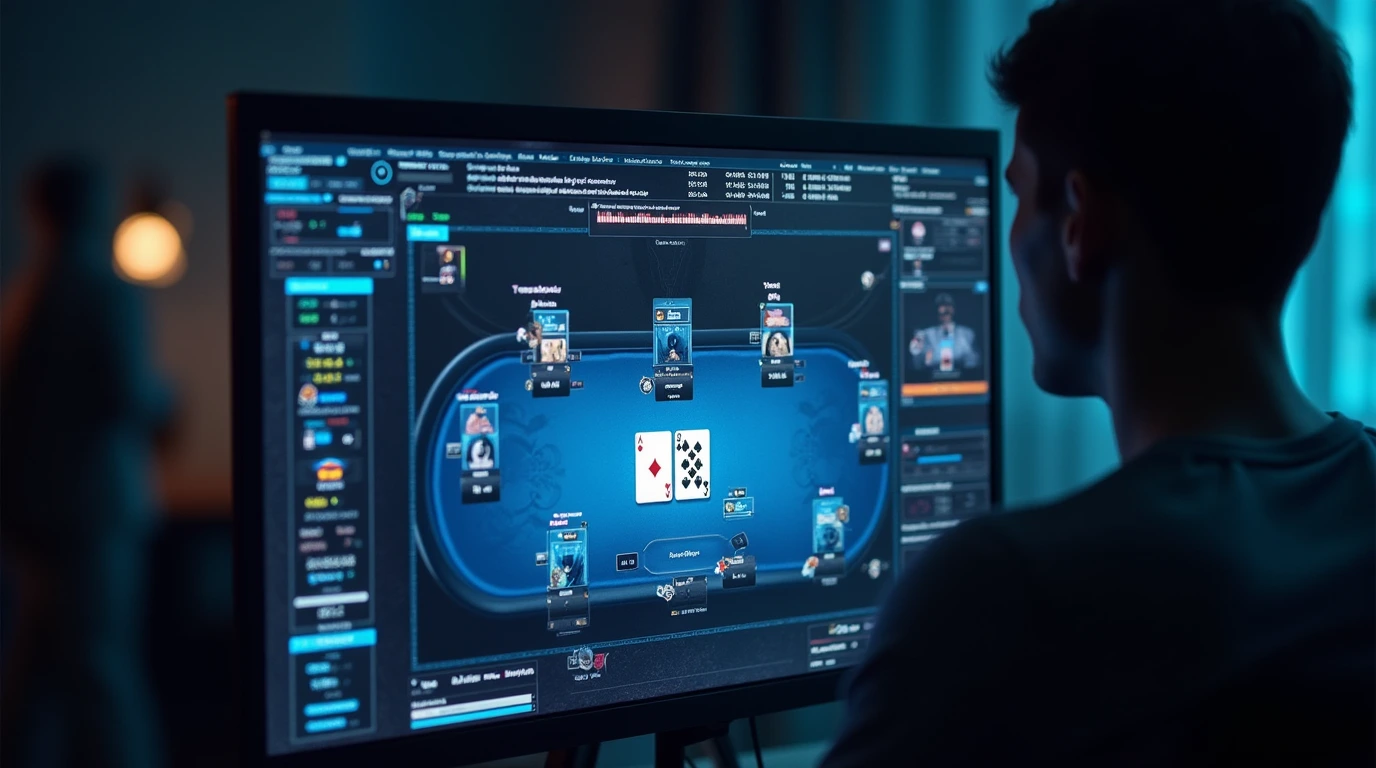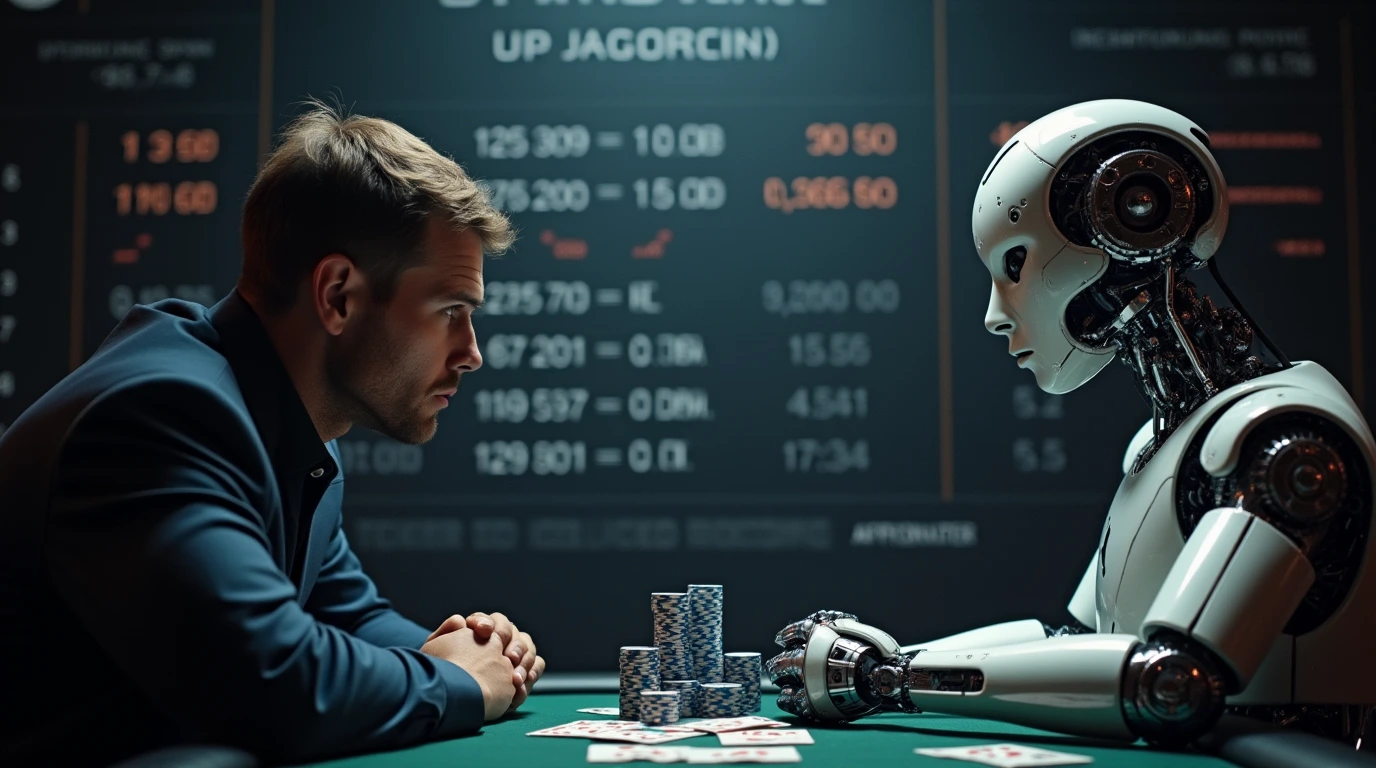You know, poker used to be about reading your opponent—watching for that nervous twitch or the tell-tale pause before a bet. But lately, the game has taken a high-tech turn. We’re now in an era where artificial intelligence is creeping its way into the felt, and it’s not just about cold numbers or robotic play. As this AI learns to bluff, just imagine in such fine detail that even grizzled players raise an eyebrow. Now, let’s peek into the research behind poker AIs and sliding bets to reveal exactly how algorithms are rewriting the rules of a game once based on intuition.
I’ve spent years building poker bots and fine-tuning poker AI algorithms. My commercial poker AI, on which I have invested countless hours into developing, is as popular with amateurs as with pros. But here is the thing— one works more and more with AI, then one realizes it is not about making a machine that plays by the book; rather, it is actually about making an AI that can improvise, much like a jazz musician that riffs off the rhythm of the room. Well, now, about this idea of a “sliding window” – it’s very technical wording, isn’t it? This is what one would read in a book on computer science, for example. What it really wants to say is that a poker bot doesn’t stick to only one specific range for the size of a bet. Actually, its bet sizing will change on-the-fly depending on what is going on in the game. Its “window” of possible actions slides so it fits into the situation.

It’s like a chef trying to taste the dish all the time, put salt, put pepper while he’s cooking. The result? Playing with the bot is far more subtle than it ever has been.
I can easily picture purists cringing at the thought of a machine “bluffing” better than a human. “Where’s the soul of the game?”. Well, here’s the twist: this tech doesn’t just mimic human play; it evolves beyond it. Through my years of poker bot research, I’ve seen AI develop strategies that aren’t merely calculated—they’re adaptive, unpredictable, and sometimes, downright sneaky. It’s like playing against an opponent who has not just mastered the game but is constantly reinventing it.
My approach—in fact, the one described in this paper which I was given—is based on methods that use sliding windows to generate what’s called “action abstractions.” Yeah, it’s a big term, but really, it boils down to this: given any particular moment, the AI can determine what set of betting actions will be most effective. It’s not locked into pre-determined sizes. Of course, it can go from big to small or anything in between, according to the heat of the game. The point about it is that it never second-guesses, unlike a human.
You’d think that would lead to super dry, automatic styles of play. You’d be wrong. Some of the sliding windows used effectively almost give the AI a sort of swagger. Take something like No-Limit Texas Hold’em. Folding, calling or betting a fixed amount ceases to be any sort of trivial decision. The AI can do its iterated process of fine-tuning its bet sizes. It is the recipe for a strategy that will be about as predictable as a bluff of an old hand—a little like that master chef adding just the right amount of spice: not too little, not too much, perfect.
I won’t lie, it’s a little unnerving to watch an AI make such humanlike decisions in a game that until very recently has been the exclusive domain of people. There’s something weirdly invigorating about it, too. Consider it a new frontier—a Wild West, where poker players and machines duke it out, each trying to outwit the other. The best part? This AI isn’t even static.

It’s not about blindly playing the same hand every time; it’s about learning, adapting to situations, and sliding those bet sizes up or down like an experienced player trying to feel out the table.
Where does that leave us? Are poker bots to become the future rulers of every table? Well, it certainly seems that way. There is still some room left for human creativity. AI may be good at statistical analysis, but it does not possess a gut feeling. It doesn’t know what it’s like to stare down a foe across a smoky room, heart racing, chips on the line. And that is where the beauty of poker remains: at the head of all this renewal, something distinctly human still takes the game to the next level. And as poker players, it is our duty to adapt, to learn from the bots, and to surprise them every now and then.
But yes, you still can beat a poker bot, but it takes thinking outside the algorithmic box. Over time, I realized those poker AI tools weren’t opponents but rather teachers. They began to open my eyes to see not only the cover layers of the game but the heavy interplay of probabilities and psychology within it. Playing against an AI is like looking into a mirror, showing you not just your moves but your tendencies, your habits, your weaknesses. This allows one the chance to evolve as a player-to hone one’s strategy. Who wouldn’t want that?
But this is quite too emotive. To be perfectly frank, poker AI software has now degenerated into a commodity; people actually use, download, and use it to get an unfair advantage in online games. Ethically, this is best described as a gray area—the line between hacks that improve one’s poker-playing prowess and cheating is, of course, very thin. The only difference for me is how you’re using the technology. You want to study with it, learn, understand the game on a deeper level—fair game; good on you. If you want to use it to cheat in a tournament, I’m sorry. Finally, poker was a game of the mind—an arena of battles in strategies, chances, and psychology. And today, with AI, we are looking for new tracks. Not to replace us, but rather to test us, to push the boundary of what we believe is possible. Next time, when you’re at a table, playing the game of chance with both human and bot opponents, remember: it’s not the hand you get dealt, but how you play them. Sometimes that well-timed slide in the bet window could make all the difference. Interesting times to live in, friends. Maybe AI has some aces up its virtual sleeve in this poker game for two. Well, that just makes the victory sweeter if you play it out.
